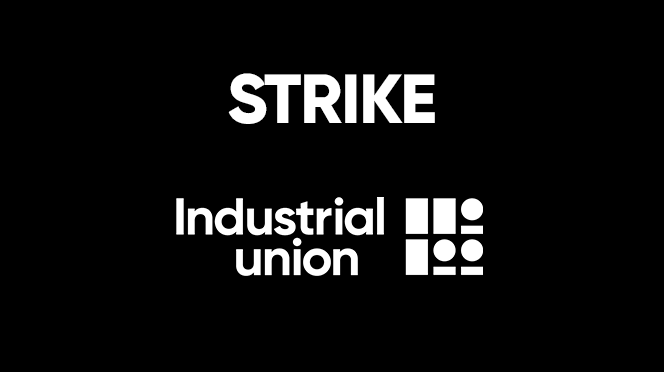
Questions and answers about the strike
1. Why have industrial action been taken?
The purchasing power of employees has weakened significantly in recent years. Although inflation has slowed down, the actual increase in prices and the increase in the cost of living are unavoidable facts. Employees have fallen into a wage gap that must now be filled.
The employer does not seem to understand the situation of employees. The employer’s unwillingness to make a reasonable solution to achieve a collective agreement has created a situation in which the Industrial Union has to accelerate negotiations with industrial action to achieve a solution.
2. Who is affected by the strike?
The strike affects selected jobs in the technology industry, chemical basic industry and in plastics and chemical products industry.
The strike covers all jobs in accordance with the collective agreement applicable at the workplace.
See the strike sites covered by the strike here.
The strike applies to all jobs, regardless of the employee’s job title or whether the person is a member of the Industrial Union or not.
Note! Industrial action also applies to employees employed by other companies who work in the companies in positions within the scope of the above-mentioned collective agreements, for example as temporary workers.
3. When does the strike start and end?
The strike covers all shifts according to the shift list that begin during the declared time period on strike day.
If a shift has started on the previous day but continues on the strike day, the shift in question will be completed.
If a shift starts during the strike days, the shift in question will not be started or completed. Work will only begin on the shift that begins on the day after the strike days.
During a strike, production at the workplace will stop. If a process requires a shutdown, it will be done before the strike starts and will be restored after the strike ends.
4. Are strikes legal?
Yes, they are. The collective agreements of all sectors participating in the strike have expired when the strike begins. Therefore, there is no valid industrial peace obligation in the sectors in question.
The right to strike is a fundamental right.
5. Can an employer terminate an employee for participating in a strike?
No. When a strike is carried out by a trade union, the employer does not have the right to terminate or terminate an employment contract for participating in a strike. The Industrial Union is a trade union.
6. What if the employer orders employees to work despite the strike?
A strike is a legal measure that employers cannot intervene in, for example by trying to prevent employees from leaving their workplaces or by imposing sanctions. Trustees also participate in a strike.
If your employer tries to prevent your right to participate in a strike, contact the Industrial Union’s employment advice service on weekdays between 8:30 and 15:00, telephone number 020 690 447 or by email at [email protected].
7. What are the limits set for a strike?
The following work is excluded from the strike: work to protect human life and health, work to prevent serious environmental threats, work at company occupational health stations, work in factory fire brigades and emergency work.
The Industrial Union’s Central Strike Committee has defined the strike limits and notified the chief shop stewards of the establishments on strike of the strike limits. The chief shop steward agrees with the employer on the work that may be excluded from the strike in accordance with the defined strike limits.
Only the Industrial Union’s Central Strike Committee can grant an exception to the strike limits. The employer applies for an exception by email from the strike emergency service.
8. Is strike allowance paid for a strike?
Yes. The strike allowance is 100 euros per shift according to the shift system. 16 euros of the strike allowance is tax-free. 40% tax is levied on the remaining part, which is paid to the tax authorities. The share payable to the member is 66.40 euros. A tax card is not required.
If the shift according to the shift system is 10 hours, the strike allowance is 1.25 times the amount and for a 12-hour shift, 1.5 times the amount. In this case, the tax rate on the portion after the tax-free portion of 16 euros is 45%.
Only members of the union are entitled to strike allowance. The allowance is received by those members who have joined the Industrial Union by:
| Strike | The latest date of becoming a member |
|---|---|
| Monday Jan 27 – Saturday Feb 1 | Wednesday Jan 22 |
| Monday Feb 3 – Saturday Feb 8 | Wednesday Jan 29 |
9. How do I apply for strike allowance?
Strike allowance is applied for through eService on the Industrial Union website. Log in to the service with your personal online banking credentials.
The chief shop steward of the strike office applies for strike allowance on behalf of a member belonging to another trade union.
| Strike | You can apply for strike allowance starting from | The last day you can apply for strike allowance |
|---|---|---|
| Monday Jan 27 – Saturday Feb 1 | Sunday Feb 2 | Friday Feb 28 |
| Monday Feb 3 – Saturday Feb 8 | Sunday Feb 9 | Friday Feb 28 |
You will receive more detailed instructions on strike allowance in your email.
If you do not see the “Strike allowance” button after logging in, check that you have entered your location in your personal information in eService. If you still cannot find the “Strike allowance” button after this, please contact us by email at [email protected].
Note! Strike allowance can only be applied for via eService on the Industrial Union website. It cannot be applied for via eService on the Open Unemployment Fund A-kassa’s website.
10. Where can I get more information about the strike?
You can get more information about the strike from your shop steward, the union’s employment advice on 020 690 447 weekdays between 8:30 and 15:00, or by email at [email protected].
11. Do the wage increase demands of the Industrial Union destroy competitiveness?
They do not. Finland can afford wage increases because we have taken care of our competitiveness. Wage increases do not endanger competitiveness because wages have risen more in our competitor countries than in Finland in recent years.
12. Will industrial action lead to company bankruptcies or the relocation of companies abroad?
It is easy to use industrial action as a scapegoat in building various horror stories. One should not give in to intimidation tactics. Employees have the fundamental right to pursue and defend their interests and position, including through industrial action, if necessary.
